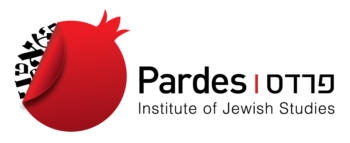Commentary on Parashat Beshalach, Exodus 13:17-17:16
Questions
1. What was the difference between Moses taking Joseph’s bones to Israel and Joseph taking Jacob’s?
2. How did the Israelites know the way to travel?
3. Through whose land did God not lead the Israelites and why?

Help us keep Jewish knowledge accessible to millions of people around the world.
Your donation to My Jewish Learning fuels endless journeys of Jewish discovery. With your help, My Jewish Learning can continue to provide nonstop opportunities for learning, connection and growth.
4. Pharaoh had finally let the Israelites go; in fact, he pushed them out. When he learned that they might be lost in the wilderness, what caused him to go after them?
5. An angel of God made sure that the Egyptians would not catch up to the Israelites. What did the angel do?
6. According to the parashah, what made the sea part so as to make a dry path?
7. What had been the attitude of the Israelites when they saw the Egyptian soldiers moving in on them, and how did it change after they saw the Egyptians drowned?
8. What do we find strange about these attitudes? What does it say about us as human beings?
9. After the Israelites left the sea and went into the wilderness, they quickly encountered a problem. What was it and how was it resolved?
10. At this point, God made a statute and an ordinance. What did He say to us?
11. On the 45th day after leaving Egypt, the Israelites were murmuring against Moses and Aaron. What was their problem this time and how was it resolved?
12. Each day the Israelites were to gather how much manna, and eat it by when? What happened if they gathered too much or too little?
13. How much is an omer?
14. When the Israelites went into the wilderness of Sin, they once again ran short of water. What did God tell Moses to do to produce the water and what did Moses do?
Answers
1. Joseph took Jacob’s bones after 30 days of mourning; Moses took Joseph’s bones after several hundred years (13:19).
2. God provided a pillar of cloud by day and a pillar of fire by night for them to follow (13:21-22).
3. God did not lead the Israelites through the land of the Philistines (14:2). If the Israelites would have seen war, they would have become afraid, and since they would be so close to Egypt it would be easy to go back.
4. God hardened Pharaoh’s heart to get honor (14:4). According to Rashi, when God avenges Himself against the wicked, His name is exalted and honored.
5. He moved the pillar of cloud from before the Israelites to behind them so the Egyptians could not see them (14:19-20).
6. Moses stretched his hand over the sea and God caused the sea to go back by a strong east wind all the night (14:21).
7. First they were afraid and said they wished they had never listened to Moses and had stayed in Egypt where they were safe. After the Egyptians drowned, the Israelites feared God, believed in Him, and in His servant, Moses (14:12,31).
8. The Israelites had seen God’s great miracles only a few days before. It is troubling how quickly they could lose their faith, and then how quickly it was restored.
9. After three days, they found no water to drink. God showed Moses a certain tree and he cast it into the bitter waters, and the waters were made sweet (15:22-25).
10. God said that if we diligently listen to His voice and do what is right in His eyes, and we pay heed to His commandments and keep all His statutes, He would ensure that the Israelites would suffer none of the diseases which He had placed upon the Egyptians; i.e., the plagues and various catastrophes (15:26).
11. They ran out of the food they had brought with them out of Egypt, so God provided manna and quail for them to eat until they were full. Manna was available in the morning and quail in the evening (16:2-4).
12. They were to gather one omer per person per day except on the sixth day, when they were to gather two omers per person, one for Shabbat. If they gathered more than an omer, it was still the correct amount. If less than an omer, they still had enough. They could not allow any manna to be left over until the next day except on the sixth day (16:4).
13. An omer is 1/10 of an ephah (source?).
14. God told Moses to take his rod and smite a certain rock in Horeb. did as God instructed and the water flowed (17:6).
Provided by the Pardes Institute of Jewish Studies.

Torah
Pronunced: TORE-uh, Origin: Hebrew, the Five Books of Moses.

Help us keep Jewish knowledge accessible to millions of people around the world.
Your donation to My Jewish Learning fuels endless journeys of Jewish discovery. With your help, My Jewish Learning can continue to provide nonstop opportunities for learning, connection and growth.


